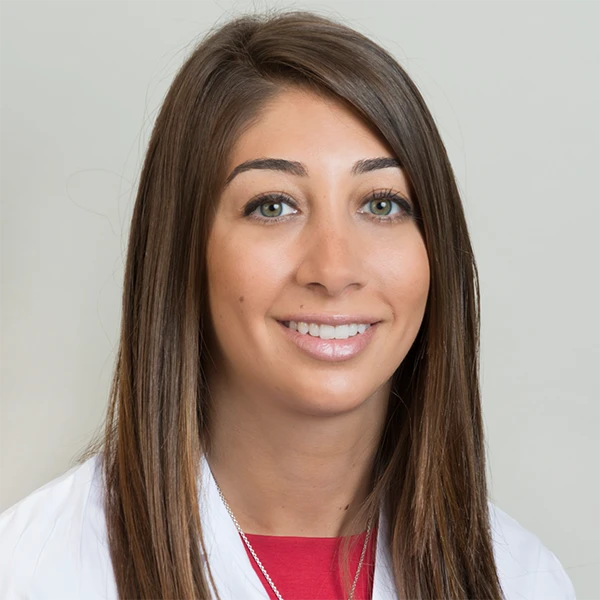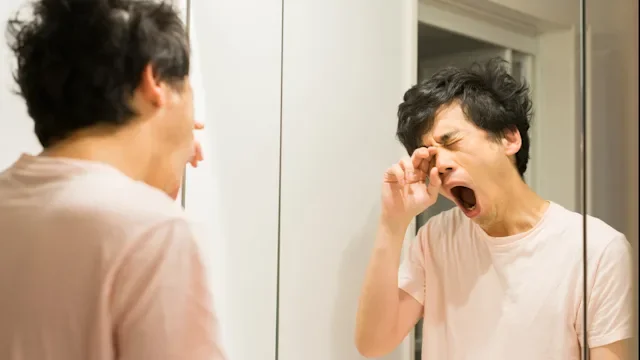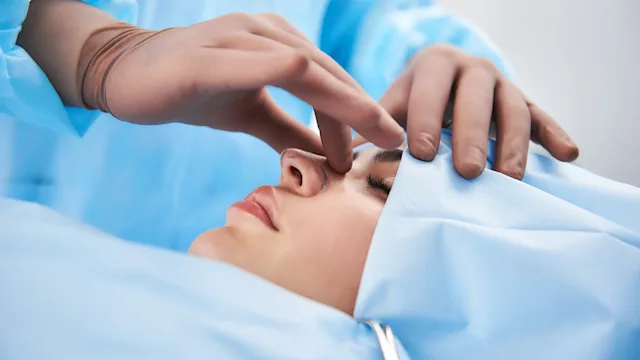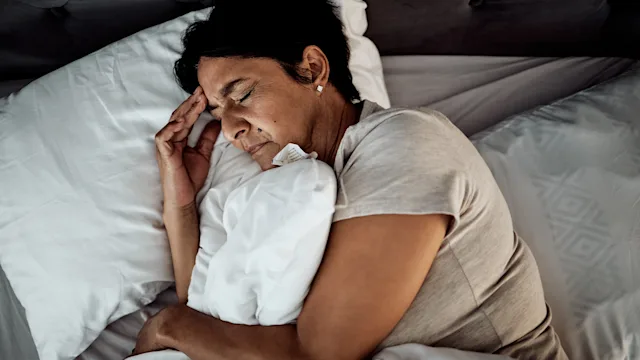Key takeaways:
Poor sleep can cause weight gain, high circulating hormone levels, and increased inflammation. These can contribute to high blood pressure.
Obstructive sleep apnea — a sleep condition that results in less oxygen in the blood — can also lead to high blood pressure.
Experts recommend 7 to 9 hours of quality sleep each night for adults. If you’re struggling to get good sleep, try improving your sleep hygiene or check in with your primary care provider.
Regularly getting a good night’s sleep is one of the best things you can do for yourself. This means sleeping at least 7 hours each night for adults. But adults in the U.S. sleep less now than in recent decades.
This is a problem, since sleep deprivation can affect everything from your mental health to how quickly you age. But you might be surprised to learn that, over time, poor sleep can lead to high blood pressure, or hypertension. There are different reasons for this, so let’s dive in.
Does lack of sleep cause high blood pressure?
Yes, lack of sleep can lead to high blood pressure. This doesn’t necessarily mean that sleep issues alone cause high blood pressure. But we do know that lack of sleep, over time, is associated with high blood pressure. And some chronic medical problems are related to both high blood pressure and sleep issues.
Search and compare options
The following sleep-related factors have been linked with high blood pressure:
Sleeping less than 5 hours a night
Irregular sleep schedule that changes frequently
Chronically disturbed sleep
Interestingly, long sleep times (more than 9 hours) have also been linked to high blood pressure. Experts aren’t entirely sure why. But it seems people who sleep more are less physically active. Less activity can lead to things like obesity, diabetes, and other metabolic syndromes. These things increase the risk of high blood pressure.
How does insufficient sleep affect your blood pressure?
Sleep issues may lead to high blood pressure in a variety of ways. Experts can’t pin down exactly how a person’s sleep affects their blood pressure. But they have found several relationships between the two, including:
Eating more: Sleep deprivation can lead to increased food consumption and weight gain. Obesity is a risk factor for high blood pressure.
Higher cortisol and glucose: Lack of sleep often results in increased cortisol and glucose levels. This can also lead to weight gain and metabolic syndromes, including high blood pressure.
Fight-or-flight response: Poor sleep can lead to an increase in sympathetic nerve stimulation (think adrenaline and other hormones). This causes blood vessels to tighten, increasing blood pressure.
Inflammation: Chronic insomnia can lead to inflammation in both the gut and the brain. Widespread inflammation could lead to high blood pressure.
It’s important to remember that none of these changes happen overnight. Chronic sleep issues, like insomnia, are what leads to high blood pressure. Insomnia is more than just having trouble falling asleep on occasion. Insomnia is defined as having trouble falling asleep and/or staying asleep for at least 3 nights per week.
Not sleeping well? Why your environment, eating habits, or other factors could be to blame.
Many over-the-counter (OTC) products claim to help you sleep better. But what do they contain, and do they work?
Sleep apnea can increase your blood pressure. Read about one person who learned this the hard way, and what he did about it.
One of the most important contributors to high blood pressure is obstructive sleep apnea (OSA). In this condition, there are episodes of airway collapse during sleep, which decreases the amount of oxygen in the blood.
Over time, this activates the sympathetic nervous system, causes inflammation, and results in tightening of the blood vessels. This in turn leads to high blood pressure. This is a well-studied relationship: The worse someone’s sleep apnea, the higher their blood pressure.
Does high blood pressure impact your sleep quality?
It’s hard to say if high blood pressure alone affects sleep quality. But we do know that people with OSA have poor sleep quality, whether or not they have high blood pressure. And treating sleep apnea, usually with a CPAP breathing machine, can both improve sleep quality and help lower blood pressure.
Read more like this
Explore these related articles, suggested for readers like you.
How do you know if your high blood pressure is from poor sleep?
There’s no way to know for sure. Of course, you can monitor your blood pressure over time to see if it responds to changes in your sleep. If you’re worried about your sleep quality, ask yourself some simple questions, like:
How many hours do you sleep?
Do you wake up tired or get sleepy during the day?
Do you keep a regular sleep schedule?
These questions can give you clues about whether your body is getting enough rest or not. Smart devices like phones, rings, and watches also have some sleep-tracking features that can give insight into your sleep quality. Keeping a sleep diary can also help you track your sleep duration and quality.
What’s the best way to treat high blood pressure from poor sleep?
Keep in mind that your high blood pressure may be caused by more than just poor sleep. So your primary care provider will likely recommend treatment in addition to sleep improvement. This usually starts with lifestyle modifications, like diet and exercise, which can also help improve your sleep.
If these changes don’t help lower your blood pressure, they may recommend medications to help lower your numbers.
If you have high blood pressure, how can you get better sleep?
Sleep hygiene is an important way to improve sleep quality. The CDC and the American Academy of Sleep Medicine have some general guidelines to help, including:
Keep a regular sleep schedule, even on the weekends.
Exercise regularly.
Avoid caffeine and alcohol close to bedtime.
Turn off devices at least 30 minutes before bedtime.
Go to bed early enough to get 7 to 9 hours of sleep.
Only use your bedroom for sleep and sex.
Keep your room cool, quiet, and relaxing.
If you’re still struggling with sleep after trying these tips for a couple of weeks, talk to a healthcare professional. They may recommend treatment with melatonin or another sleep aid. They can also help determine if you need a sleep test to diagnose a sleep disorder, like OSA or insomnia.
The bottom line
Over time, poor and insufficient sleep can lead to high blood pressure. Sleep conditions like OSA are also known risk factors for high blood pressure. Keep good sleep hygiene habits and try to get 7 to 9 hours of sleep each night. Talk with a healthcare professional if you’re worried about your sleep quality and/or its effects on your heart health.

Why trust our experts?



References
American Academy of Cardiology. (2024). Getting too little sleep linked to high blood pressure.
Bacaro, V., et al. (2020). Sleep duration and obesity in adulthood: An updated systematic review and meta-analysis. Obesity Research & Clinical Practice.
Bock, J. M., et al. (2022). Sleep duration and hypertension: Epidemiological evidence and underlying mechanisms. American Journal of Hypertension.
Centers for Disease Control and Prevention. (2024). About sleep.
Ford, E. S. (2015). Trends in self-reported sleep duration among US adults from 1985 to 2012. Sleep.
Hershner, S., et al. (2020). Healthy sleep habits. American Academy of Sleep Medicine.
Institute of Medicine Committee on Sleep Medicine and Research. (2006). Extent and health consequences of chronic sleep loss and sleep disorders. Sleep Disorders and Sleep Deprivation: An Unmet Public Health Problem.
Konecny, T., et al. (2013). Obstructive sleep apnea and hypertension: An update. Hypertension.
Sajjadieh, A., et al. (2020). The association of sleep duration and quality with heart rate variability and blood pressure. Tanaffos.
Scott, H. (2023). Sleep irregularity is associated with hypertension: Findings from over 2 million nights with a large global population sample. Hypertension.
Wang, Y., et al. (2015). Relationship between duration of sleep and hypertension in adults: A meta-analysis. Journal of Clinical Sleep Medicine.


















